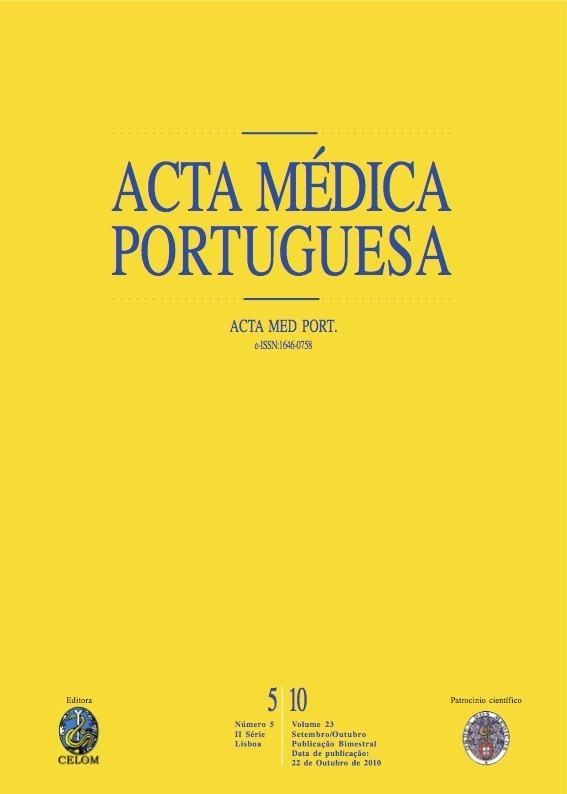Food and beverages available in automatic food dispensers in health care facilities of the Portugal North Health Region.
DOI:
https://doi.org/10.20344/amp.730Abstract
Patients and health staff frequently need to stay in health care facilities for quite a long time. Therefore, it's necessary to create the conditions that allow the ingestion of food during those periods, namely through the existence of automatic food dispensers. However, the available food and beverages might not always be compatible with a healthy diet. The aim of this work was to evaluate if the food and beverages available in automatic food dispensers in public Ambulatory Care Facilities (ACF) and Hospitals of the Portugal North Health Region were contributing to a healthy diet, during the year of 2007. A questionnaire was elaborated and sent to the Coordinators of the Health Sub-Regions and to the Hospital Administrators. The questionnaire requested information about the existence of automatic food dispensers in the several departments of each health care facility, as well as which food and beverages were available and most sold. Afterwards, the pre-processing of the results involved the classification of the food and beverages in three categories: recommended, sometimes recommended and not recommended. The questionnaire reply ratio was 71% in ACF and 83% in Hospitals. Automatic food dispensers were available in all the Hospitals and 86.5% of ACF. It wasn't possible to acquire food in 37% of the health facility departments. These departments were all located in ACF. The more frequently available beverages in departments with automatic food dispensers were coffee, still water, tea, juices and nectars and soft drinks. Still water, coffee, yogurt, juices and nectars and soft drinks were reported as the most sold. The more frequently avaliable food items were chocolate, recommended cookies, not recommended cakes, recommended sandwiches and sometimes recommended croissants. The food items reported as being the most sold were recommended sandwiches, chocolate, recommended cookies, sometimes recommended croissants and not recommended cookies. The beverages in the recommended and sometimes recommended groups were the most frequently available and sold. The not recommended food items were reported as being the most available, while both the recommended and not recommended food items were equally reported as being the most sold. Results show that unhealthy food and beverages are widely available in public health care facilities of the Portugal North Health Region.Downloads
Downloads
How to Cite
Issue
Section
License
All the articles published in the AMP are open access and comply with the requirements of funding agencies or academic institutions. The AMP is governed by the terms of the Creative Commons ‘Attribution – Non-Commercial Use - (CC-BY-NC)’ license, regarding the use by third parties.
It is the author’s responsibility to obtain approval for the reproduction of figures, tables, etc. from other publications.
Upon acceptance of an article for publication, the authors will be asked to complete the ICMJE “Copyright Liability and Copyright Sharing Statement “(http://www.actamedicaportuguesa.com/info/AMP-NormasPublicacao.pdf) and the “Declaration of Potential Conflicts of Interest” (http:// www.icmje.org/conflicts-of-interest). An e-mail will be sent to the corresponding author to acknowledge receipt of the manuscript.
After publication, the authors are authorised to make their articles available in repositories of their institutions of origin, as long as they always mention where they were published and according to the Creative Commons license.









